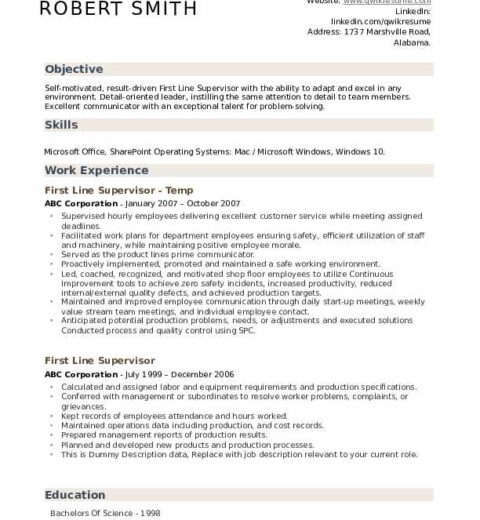In the labyrinth of career advancement, few questions evoke as much debate as the length of a résumé. Should it be a single page, showcasing the most pertinent details with surgical precision? Or does a two-page format offer a more comprehensive narrative of one’s professional journey? This inquiry transcends a mere preference for brevity or verbosity; it encapsulates a paradigm shift in how we perceive self-presentation in the competitive arena of job searching.
Historically, the one-page résumé has prevailed as the preferred norm, particularly for entry-level positions or individuals with fewer than ten years of experience. In an age of diminishing attention spans and an influx of digital information, brevity became synonymous with clarity. Employers, in their quest for efficiency, may sift through hundreds of applications; thus, a succinctly crafted résumé could make the decisive difference between a candidate being selected for an interview or relegated to the rejection pile.
Yet, this conventional wisdom invites examination. Is a one-page résumé a paragon of conciseness or merely a sign of an overly restrictive mindset? A two-page résumé, when executed effectively, can yield a wealth of information about accomplishments, skills, and professional evolution that a single page might inadequately convey. This perspective prompts us to explore the intricacies of résumé length, focusing on various factors that influence this choice.
The first critical consideration is the candidate’s professional experience. For emerging professionals—recent graduates or those transitioning into new fields—a one-page résumé generally suffices. It enables them to highlight essential skills, education, and relevant internships or projects without overwhelming potential employers. This minimalist approach not only adheres to convention but also allows for a focused narrative that resonates with hiring managers.
Conversely, seasoned professionals or those with abundant experiences, achievements, and varied roles might find that a one-page résumé inadequately captures their essence. In such cases, a two-page résumé can unveil a rich tapestry of a multifaceted career, offering insights into professional growth through detailed accounts of past positions, accomplishments, and skill acquisition. It can delineate the nuances of a career trajectory that a single page might obscure, ultimately providing a more persuasive argument for a candidate’s suitability.
Moreover, the industry context plays a pivotal role in determining résumé length. Certain fields, such as academia or scientific research, often necessitate a detailed curriculum vitae (CV) that extends beyond two pages. In these specialized arenas, comprehensive documentation of publications, presentations, and affiliations is not only commonplace but expected. Contrastingly, sectors such as technology or creative industries often gravitate towards succinct, impactful statements that embody a one-page format.
Another vital consideration is the specific job for which one is applying. Tailoring a résumé to match job descriptions is a surefire strategy for enhancing employability. For positions that emphasize particular skills or achievements, a two-page résumé allows for the meticulous alignment of past experiences with job-specific criteria. This alignment can significantly enrich the candidate’s appeal, making their application more compelling.
As the digital realm continues to shape our professional landscapes, the advent of applicant tracking systems (ATS) introduces further complexity regarding résumé format and length. These systems parse through applications, often filtering candidates based on keyword relevance and formatting consistency. With industry nuances varying significantly, optimizing a résumé for ATS while retaining readability for human reviewers can pose a daunting challenge. A two-page résumé, if well-organized with strategically placed keywords, can grip both algorithms and hiring managers alike, effectively navigating through the dual lenses of technology and humanity.
That said, the efficacy of a lengthy résumé resides not solely in its length but its content quality. Each section must serve a distinct purpose, articulating a coherent narrative that accentuates achievements and elucidates skills. A cluttered two-page résumé filled with meandering details and redundant information risks diluting a candidate’s value proposition. Instead, clarity and precision should remain at the forefront, ensuring that key points stand out and resonate with the reader.
A pivotal aspect to remember is that the primary goal of a résumé is to secure an interview—not to chronicle every minutiae of one’s career. With this in mind, candidates should ask themselves whether each piece of information genuinely contributes to that objective. Whether choosing one page or two, the paramount task is to communicate your professional identity convincingly and authentically.
In conclusion, the debate surrounding résumé length embodies a broader conversation about how we navigate the complex landscape of professional positioning. Both one-page and two-page formats have distinct advantages and disadvantages that cater to varying levels of experience, industry practices, and specific job targets. Ultimately, a résumé serves as a powerful portrayal of one’s professional persona. By understanding not only the traditional conventions but also the evolving dynamics of the job market, candidates can make informed decisions that best reflect their unique qualifications and aspirations. As the process of crafting a résumé continues to evolve, embracing this fluidity can provide candidates with the competitive edge they seek in their professional endeavors.



